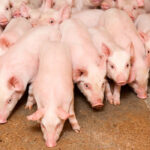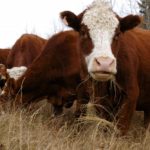A group of Manitoba Shetland breeders hopes the next round of lambs will mark a new era for flock genetics. Three farms joined forces to give their operations a shot of U.K.-based bloodlines. Ewes underwent laparoscopic artificial insemination with imported semen in mid-December. A fourth farm is slated to receive lambs should the procedures prove






